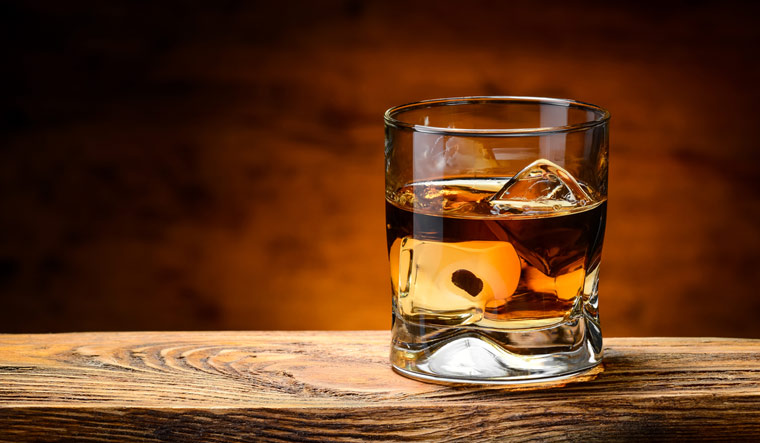NEW DELHI: Trade or consumption of liquor is not a fundamental right and the state has the authority to regulate its sale, the AAP government has told the Delhi High Court maintaining that its levying 70 per cent ‘special corona fees’ on MRP of all alcohol brands is a price for grant of such privilege to the public.
The Delhi government opposed a batch of petitions challenging its May 4 notification levying the ‘special corona fees’ on liquor, and said there was an element of privilege viz-a-viz sale/ dealing in liquor and the state is free to regulate it under the excise law.
“Accordingly the state is also free to impose and recover a price for grant of such privilege. Such imposition need not be either a tax or a fee yet less excise duty, or for that matter form part of Excise revenue.
“The present impugned levy (special corona fee) is nothing but a combination of price of such privilege and cost of such regulation and supervision,” the Delhi government’s Department of Excise said in an affidavit filed in response to the petitions.
The pleas are listed for hearing in the court on Friday.
“A citizen, therefore, has no fundamental right to do trade or business in liquor or for that matter also to consume liquor. On the other hand, the State has the authority and jurisdiction to regulate (including prohibit totally or partially) such trade and commerce as well as to regulate the sale, purchase and consumption of liquor,” the Delhi government said.
Besides Delhi, 10 other states, Assam, Meghalaya, Karnataka, Andhra Pradesh, Telangana, Uttar Pradesh, Haryana, Rajasthan, Tamil Nadu and West Bengal have imposed similar fees, it said.
The affidavit said owing to the clamp down on all economic activities due to coronavirus (Covid-19) lockdown, the revenue of Delhi government (which primarily comes from VAT/GST collection, state excise and stamp duty) has shrunk by almost 90 per cent in April 2020 and the total collections dwindled to a mere Rs 300 crore as opposed to approximately Rs 4,000 crore in the corresponding month in 2019.
“Between May 4 to 25, the total sale of operational liquor vends has been Rs 187 crore which is way too less as compared to the sale figures of May 2019 as the number of shops operational last year were around 800 and as of now, only 40 per cent of them are operational due to various restrictions imposed by the government in view of the coronavirus outbreak,” it said.
The government said the total excise revenue, including the ‘corona fee’, collected by the state during May 4 to 25 has been to the tune of Rs 227.44 crore which includes Rs 127 crore of special corona fee, as against the total revenue collection of Rs 425.24 crore in May last year.
“The Delhi Excise Act, 2009 and the Rules framed thereunder also empowers the state to accord the privilege of a peculiar nature and also to regulate/ supervise the sale, purchase and consumption of liquor in the national capital territory of Delhi during the currency of COVID-19 pandemic, particularly in view of the lockdown measures/ directives announced by the Central government/ Delhi government and its Excise Department,” it said.
A batch of petitions were filed, including by advocate Lalit Valecha and Praveen Gulati, challenging levy of ‘special corona fees’.
Valecha has contended in his petition that the ‘special corona fees” is in excess of what has been authorised by law and accordingly it is being collected arbitrarily.
In his petition, he has said that the order of levying fee was an afterthought and an after effect of the overcrowding and violation of social distancing norms outside liquor shops.
The unprecedented levy of ‘special corona fee’ by the Delhi government resulting in overall increase in MRP (maximum retail price) of the liquor by 70 per cent was “arbitrary, uncalled for and bad in law”, the petition has alleged.
Gulati, in his plea, has sought quashing of the May 4 notification claiming that it is highly arbitrary, irrational and, therefore, violates Article 14 (equality before law) of the Constitution. He has also sought directions to the government to refund the money collected under the notification. (AGENCIES)
Trending Now
E-Paper


